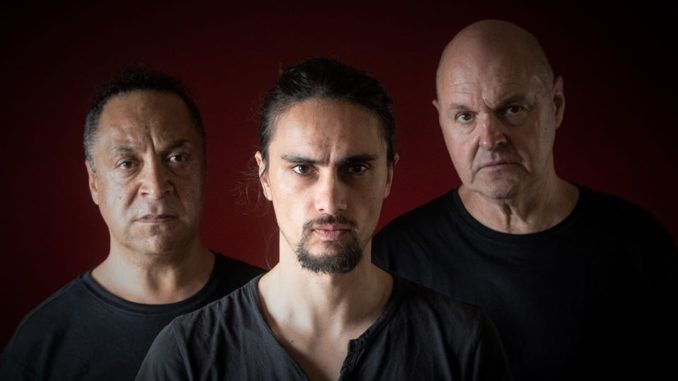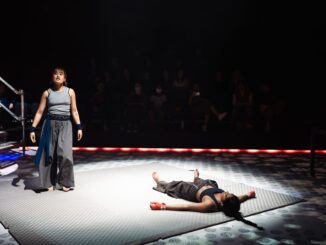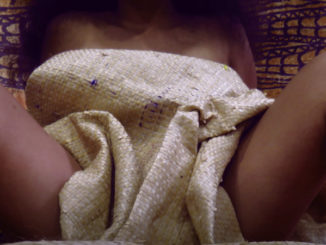
[Conversations with the Dead]
Set in the afterlife, Aroha Awarau’s latest play Provocation is a study in grief. Not the grieving of others but the grief of oneself. Two gay men in limbo, confronted by the hate crimes committed against them, and desperate to find some sort of peace.
This isn’t the first time Awarau has mined the depths of history to inspire his playwriting, perhaps an appropriate and unsurprising turn based on his journalistic background. Theatre offers the possibility of exploring the speculative and hidden sides of stories. With Luncheon we got a glimpse behind-the-scenes at the Oscars. With Officer 27, he crafted a study of a mother in mourning after an accidental police shooting, ripped straight from the headlines.
Leaning into the politics of desire, Awarau doesn’t shy away from the murky greyness of the inciting incidents that led to the death of these men. While these men are no doubt the victims of heinous crimes, the situations leading them to their demise are not squeaky clean.
Parallels between Provocation and dramaturg Gary Henderson’s An Unseasonable Fall of Snow are prominent, without ever feeling derivative. What we have are contemplative studies in Kiwi masculinity within a metaphorical space. Henderson’s through a distinctly heterosexual lens, and Awarau’s through a distinctly queer one.
Bryan (Paul Barrett) is the sort of gay man that society today still has issues with. A white gay man unashsamed of his own effinitenty, unabashed with campness, a perfect target for homophobia. And yet he relishes and finds joy in the situation, making the most of a dire situation. Max (Hori Ahipene), on the other hand, is deeply in the closet. He is a family man who cruises dangerously, repressing his desires until they seem to explode violently. Seething with self-loathing, Bryan represents everything he is running away from.
The two central performances by Barrett and Ahipene hold the play together, giving it the deep, psychological realism necessary to understand the social backdrop of the world they live in. A reminder that the world still has a long way to go accepting queer life in the everyday. That prejudice still lurks around unexpected corners.
As the killer(s) of both men, Joe Dekkers-Reihana embodies a startling homophobic intensity, drawing subtle variations for the two men. It’s a sympathetic portrayal that conveys a world of pain and regret for his actions.
The late introduction of Ruby Hansen’s Charlotte to the drama feels like the only real misstep in the production. Her presence and performance evokes the appropriate amount of bewilderment but lacks any sense of narrative purpose. Thematically she merely serves to remind us of society’s hypocrisy, but never moves beyond feeling like a playwright’s plot device. It’s a frustrating swerve in what is mostly a series of carefully built scenes.
Directed with the intensity of a psychological thriller, Ward-Lealand leans into the elliptical narrative’s sense of mystery. Scenes are further punctuated by Paul McLaney’s moody sound design. And the stripped back lighting (Michael Craven) and set design (Jane Hakaraia) masterfully create a world that is neither past nor present, focusing only on the most essential element of drama. People.
Awarau’s dialogue is sharp and drip-feeds exposition at a deliberate and careful rate, never revealing too much too soon. The potential heaviness of the material often softened by the wit of the humour, particularly in Barrett’s performance. The structure is taut and without much extraneous fat, moving quickly towards the moving final scene. The play ends with a subtle gesture, asking us to acknowledge the gaps of understanding in our own community. If anything, at under an hour, there is a sense that the play could be slightly denser, further exploring the lives of these men and the limbo they inhabit.
Though “the dead cannot cry out for justice” is an accurate and stirring tagline, Provocation is an attempt to give a voice to those who cannot speak. An elegiac tribute to the victims of horrendous acts of violence, guised as acts of self-defense.
Provocation played Herald Theatre 12-15 February, 2020 as part of Auckland Pride.




Leave a Reply